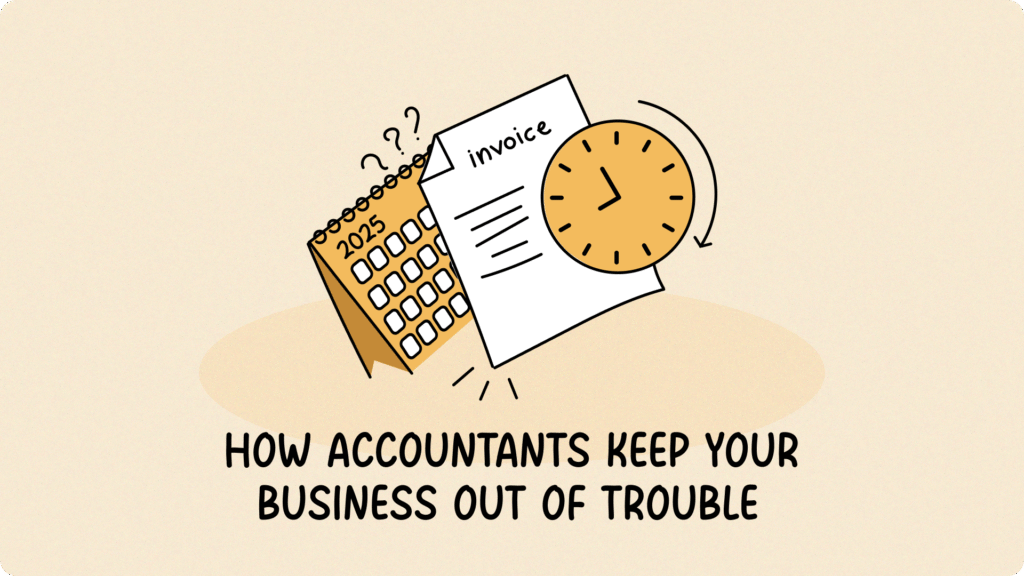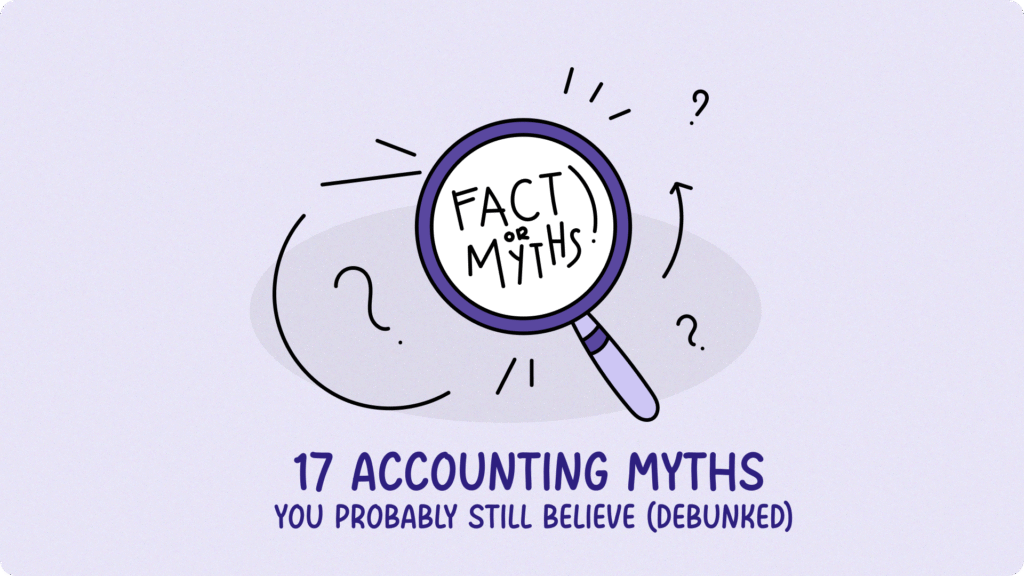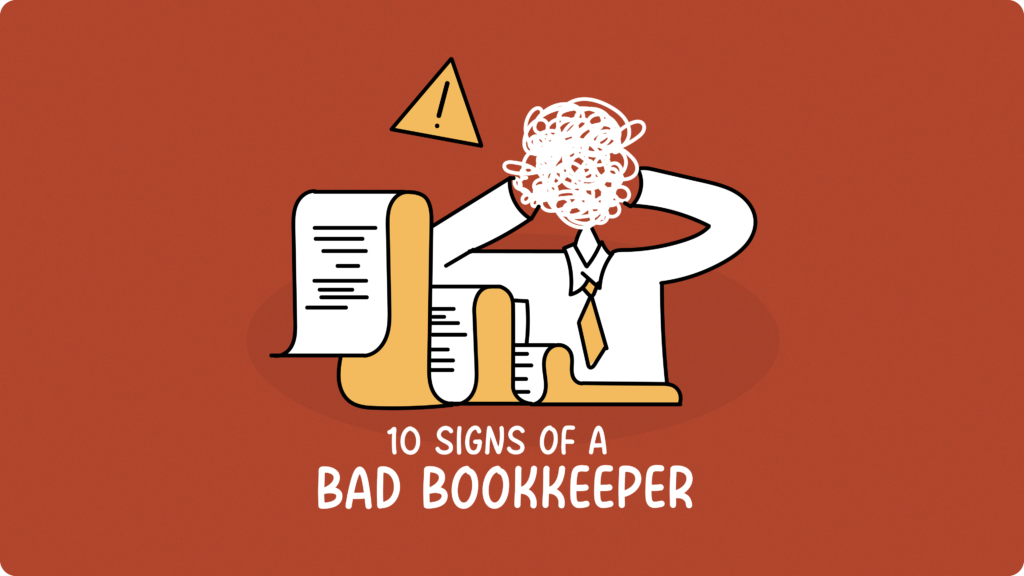C-Corp Tax Filing Checklist: The Definitive Guide to Corporate Filing

Navigating tax season for a C-Corporation can feel like a significant responsibility. Unlike a pass-through entity, a C-Corp is a separate legal and taxable entity, making its tax filings more involved. But with a clear checklist and a solid understanding of the deadlines, you can get through it with confidence. This guide is designed for business owners in the USA who have chosen to incorporate as a C-Corporation, helping you understand the necessary forms, documents, and key dates to stay compliant with the IRS. Table of Contents C-Corp Taxation Explained First, a quick refresher. A C-Corporation is a legal entity entirely separate from its owners. A key distinction is that the C-Corp itself pays corporate income taxes on its profits. Then, when it distributes dividends to its shareholders, those individuals are taxed on that income as well—a process commonly referred to as double taxation. Despite this, C-Corps offer significant advantages for certain businesses, such as unlimited growth potential, the ability to raise capital by selling stock, and robust legal liability protection for shareholders. This structure is often favored by startups with plans for venture capital funding or eventual public offerings. The Most Important Deadline to Know For a calendar-year C-Corp, the main deadline for filing your federal return is April 15, 2026 (for the 2025 tax year). This is also the due date for your first quarterly estimated tax payment. For the 2026 tax year, the deadline will be April 15, 2027. If you need more time, you can file for an extension using Form 7004, which gives you an additional six months to file, pushing your deadline to October 15, 2026. However, remember that an extension to file is not an extension to pay. If you expect to owe any tax, you must pay it by the April 15 deadline to avoid penalties and interest. The C-Corp Tax Filing Checklist Let’s get down to business. Here are the items you’ll need to prepare for your C-Corp tax filing. 1. Essential Financial Records Start by getting your financial house in order. Make sure invoices and receipts are organized and complete. 2. Key IRS Forms Feeling a bit overwhelmed by the list of forms? Don’t worry—you don’t have to be a tax expert to understand the essentials. Here’s a breakdown of the most important forms you’ll encounter and a heads-up on what to watch out for. 3. Don’t Forget These Details! A few small mistakes can lead to big problems. Double-check these items before filing. The Cost of Missing a Deadline Filing a C-Corp’s tax return late can be costly, and the IRS imposes two main types of penalties: If both penalties apply in the same month, the late filing penalty is reduced to 4.5%, so the combined monthly penalty is 5%. If a return is more than 60 days late, the minimum penalty is the lesser of $510 or 100% of the unpaid tax. This is an increase from the $485 penalty that applied for the 2024 tax year. Remember, interest is also charged on all unpaid amounts, which can add up quickly. It’s always best to file on time even if you can’t pay the full amount due. Get Ready for a Smoother Tax Season Preparing for a C-Corp’s tax filing can feel like a big responsibility. But with a clear plan and the right tools, it’s entirely manageable. By proactively gathering your documents and paying close attention to deadlines, you can minimize stress and avoid costly penalties. Disclaimer: The information provided in this guide is for informational purposes only and does not constitute legal or tax advice. Tax rules are subject to change, so always check IRS.gov or consult with a professional accountant or tax advisor for your specific situation. This is where having a reliable accounting system can make all the difference. When all your financials—from income and expenses to payroll—are organized and synced in one place, generating the reports you need for your tax professional (or for filing yourself) becomes a streamlined process. Fynlo is designed to simplify these tasks, so you can focus on what you do best: running your business. Ready to see how Fynlo can transform your tax prep? Schedule a call with our experts to find out more! You may also like these articles:
S-Corp Tax Filing Checklist: Simplify Your Tax Season

Tax season for a small business owner is a bit like a marathon—you know the finish line is coming, but getting there requires preparation, stamina, and a good plan. For S-Corporations, the process has its own unique rules and deadlines. Missing a step or a key date can lead to a lot of headaches (and penalties!). This checklist is designed to help freelancers and small business owners in the USA navigate their S-Corp tax filing with confidence. We’ll break down the forms you need, the documents you must gather, and the critical deadlines to keep you on the right side of the IRS. Table of Contents S-Corp Taxation Explained First, a quick refresher. S-Corps are known as “pass-through” entities. This means the business itself typically doesn’t pay federal income tax. Instead, the profits, losses, deductions, and credits “pass through” to the shareholders (that’s you!) who then report them on their own personal tax returns. This is a huge benefit because it avoids the “double taxation” that C-Corporations face. However, just because the business doesn’t pay income tax doesn’t mean it gets a free pass. You still need to file an informational return with the IRS, which is where this checklist comes in. The Most Important Deadline to Know For a calendar-year S-Corp, the main deadline for filing your federal return is March 17, 2025 (for the 2024 tax year), because March 15, 2025 falls on a Saturday and the due date moves to the next business day. For the 2025 tax year, the deadline will be March 16, 2026 (since March 15, 2026 falls on a Sunday). Mark your calendar and don’t miss it! If you need more time, you can file for an extension using Form 7004, which will give you an additional six months to file. But remember, this only extends the time to file, not the time to pay. If you expect to owe any tax (for things like built-in gains or excess passive income), you must pay it by the filing deadline (March 17, 2025; March 16, 2026) to avoid penalties and interest. The S-Corp Tax Filing Checklist Let’s get down to business. Here are the items you’ll need to prepare for your S-Corp tax filing. 1. Essential Financial Records Start by getting your financial house in order. Make sure invoices and receipts are organized and complete. 2. Key IRS Forms As a business owner, you become an expert in many things—and tax forms are no exception. Here’s a breakdown of the most important forms you’ll encounter and a heads-up on what to watch out for. 3. Don’t Forget These Details! A few small mistakes can lead to big problems. Double-check these items before filing. The Cost of Missing a Deadline Filing late can be expensive. For the 2024 tax year, the penalty for a late S-Corp filing is $245 per month (or part of a month) the return is late. This penalty is multiplied by the number of shareholders. For example, if your S-Corp has two shareholders, the penalty is $490 per month. This can add up quickly! Get Ready for a Smoother Tax Season Filing taxes for an S-Corp can feel daunting, but with a clear plan and the right tools, it’s entirely manageable. By proactively gathering your documents and paying close attention to deadlines, you can minimize stress and avoid costly penalties. This is where having a reliable accounting system can make all the difference. When all your financials—from income and expenses to payroll—are organized and synced in one place, generating the reports you need for your tax professional (or for filing yourself) becomes a streamlined process. Fynlo is designed to simplify these tasks, so you can focus on what you do best: running your business. Ready to see how Fynlo can transform your tax prep? Schedule a call with our experts to find out more! You may also like these articles:
How Accountants Keep Your Business Out of Trouble

When you run your own business, you manage everything from client work to backend logistics—often in the same hour. One moment you’re pitching new clients, the next you’re processing invoices or troubleshooting a tech issue. While most of these roles are focused on growth and creativity, some—like acting as your own Chief Financial Officer—come with significant risk. It’s easy to think of an accountant as a cost—someone you hire once a year to handle your tax return. But that’s a dangerously narrow view. A great accountant isn’t a reactive expense; they are a proactive shield, your first line of defense against a host of troubles that can derail a thriving business. The financial landscape is complex. According to a report from the National Small Business Association (NSBA), about one-third of small business owners spend over 80 hours per year—two full work weeks—just dealing with federal taxes alone. That’s a huge drain on your time, and it’s just one of the many financial challenges you face. A good accountant does more than just file your taxes. They actively work to keep your business safe, solvent, and on the right side of the rules. Here’s how. Table of Contents 1. They Keep You Out of Tax Trouble This is the most obvious, but also the most critical, role an accountant plays. The tax code is notoriously complicated and constantly changing. An accountant ensures you’re not just meeting deadlines, but doing it right the first time. They go beyond basic compliance by: 2. They Keep You Out of Cash Flow Trouble Here’s a hard truth for many business owners: profit does not equal cash in the bank. You can have a profitable month on paper but still not have enough cash to make payroll. And it matters—a study found that 82% of small business failures are due to poor cash flow management. It’s one of the leading reasons businesses that seem successful still shut their doors. An accountant is your safeguard against this. They help you: 3. They Keep You Out of Compliance & Legal Trouble Beyond taxes, there are other regulatory areas where a simple mistake can lead to significant penalties. An accountant helps steer you clear of these common landmines. One of the biggest is worker classification. Misclassifying a W-2 employee as a 1099 independent contractor can lead to severe penalties from the DOL and IRS for back taxes and benefits. An accountant provides crucial guidance to make sure you classify your team correctly from the start. They also ensure payroll is run accurately and that you’re maintaining the clean, professional records required for securing a business loan, renewing insurance, or even selling your business down the line. 4. They Keep You Out of Strategic Trouble Some of the most expensive mistakes in business aren’t about compliance; they’re about strategy. A good accountant acts as an objective, data-driven sounding board for your biggest decisions. Before you make a move, they help you answer the tough questions: They prevent you from making emotionally-driven decisions that your finances can’t actually support. By modeling the financial impact of your ideas, they help you grow your business sustainably and avoid costly strategic errors. Your Proactive Partner, Powered by Smart Technology Think of a great accountant not as a cost, but as an investment in your business’s safety, stability, and long-term health. They are the expert on your team whose entire job is to watch your back. But their strategic advice is only as good as the data they receive. Today, the most effective accountants work in partnership with their clients through modern, cloud-based accounting software. This approach creates a collaborative relationship where your financial data is always up-to-date. The software automates the tedious work of data entry and organization, freeing up your accountant to focus on what really matters: providing the proactive advice that keeps your business out of trouble. Having clean, organized financials is the first step to empowering them—and yourself. If you’re ready to build a financial foundation that supports smart decision-making, schedule a free call with one of our specialists. Or, if you prefer to dive in yourself, sign up for free and start exploring today.
17 Accounting Myths You Probably Still Believe (Debunked)

Most of us dive into freelancing or small-business ownership for the work itself—designing, consulting, baking. The last thing we signed up for was bookkeeping. Yet every conversation comes with unsolicited “advice” from well-meaning friends or relatives: “Just write off everything!” or “You don’t need records—just save your bank statements.” Those myths don’t just create unnecessary stress—33% of small-business owners report they regularly lose sleep over money worries—and they can cost you real dollars if left unchecked. We didn’t get into business to become accountants, so it’s easy to fall for these misconceptions. Let’s debunk these myths and give you the clarity to manage your finances confidently. Myth 1: Accounting is only for tax season. Reality: Accounting is a year-round activity that gives you a real-time pulse on your business’s health. Why It Matters: Scrambling for records in March or April creates stress, missed deductions, and rushed decisions. Reviewing your books monthly, or even weekly, lets you spot small issues, improve cash flow, and cut costs before they spiral out of control. Myth 2: I’m too small to need formal accounting software. Reality: Spreadsheets are prone to errors and can’t scale with your business. In fact, research indicates that up to 88% of spreadsheets contain significant mistakes. Why It Matters: I’ve been there. My first year I tracked everything in a spreadsheet. A single misplaced formula almost cost me $500 in underreported income. Modern cloud software is affordable, automates data entry, and lets you connect your bank feed, so you save hours and get a clearer financial picture. Myth 3: I can write off 100% of my home-office costs. Reality: You can only deduct the portion of your home used exclusively and regularly for business. Why It Matters: Over-claiming this deduction is a classic IRS red flag. You can choose the simplified method (up to $1,500) or the actual-cost method (allocating mortgage, utilities, insurance). Use whichever yields the bigger benefit, but only for truly dedicated office space. Myth 4: A business credit card can replace a business bank account. Reality: A credit card lets you borrow money, while a bank account is where your business’s cash actually lives. You need both, but a separate business bank account is especially important to manage funds properly. Why It Matters: Mixing personal and business money in one account can strip away your LLC’s liability protection, exposing your personal assets if things go wrong. It also turns bookkeeping and tax preparation into a tangled mess. A dedicated business bank account keeps your finances clear, simplifies reconciliations, and ensures your legal and financial records stay rock solid. Myth 5: I don’t need to save receipts if I have a bank statement. Reality: The IRS requires proof of purchase, and bank statements alone don’t show what you actually bought Why It Matters: Picture an auditor asking what a $200 Amazon charge covered. A bank statement alone won’t prove it was for a printer rather than a TV. Instead, digitize and tag every expense as it happens using receipt-capture apps like Dext or QuickBooks Snap. Myth 6: Profit is the same as cash flow. Reality: Your profit on paper may look healthy, but cash flow measures the actual dollars in your account that keep your business running. It’s a crucial difference, and an Intuit study found that 61% of small-business owners struggle with cash-flow issues. Why It Matters: Your Income Statement can show a big profit, but if clients haven’t paid, you can’t pay your bills. This is the single most critical survival concept. Myth 7: I can pay myself whatever’s left in the business account. Reality: You must set aside money for taxes and business savings before paying yourself. Why It Matters: Following Mike Michalowicz’s “Profit First” principle means you allocate percentages to tax and profit accounts before paying yourself. This approach prevents the panic of facing a large tax bill with no funds set aside. Myth 8: Bartering (trading services) isn’t taxable. Reality: The fair market value of services received in a trade counts as taxable income. Why It Matters: If a web designer trades $2,000 of work for $2,000 of photography, each party must report $2,000 of income. Don’t let “free” trades cost you in unreported revenue. Myth 9: An accountant is too expensive for my small business. Reality: A good accountant saves you more money than they cost. Why It Matters: They prevent mistakes, uncover deductions, and save you hours of work. For example, a $2,000 annual fee is repaid when you reclaim just 40 hours of time—hours you can spend on billable work or growing your business. This makes an accountant an investment, not an expense. Myth 10: My bookkeeper and my tax preparer are the same thing. Reality: Bookkeeping is daily transaction recording, while tax preparation is annual return filing. Why It Matters: Clean, year-round books speed up tax season and reduce preparation costs because your accountant can work directly with accurate, organized records. Myth 11: I can deduct the cost of my commute to my office or co-working space. Reality: Commutes from home to your primary workplace are non-deductible, but you can deduct business trips beyond that, such as driving to client meetings. Why It Matters: Misclassifying personal travel as business mileage invites audit scrutiny. Only log miles driven for business purposes beyond your usual commute. Myth 12: Estimated taxes are optional. Reality: If you expect to owe more than $1,000 in tax, you must pay quarterly estimated taxes. Why It Matters: The U.S. is a “pay-as-you-go” system. Missing estimated payments triggers underpayment penalties—just like an employee missing withholding. Myth 13: Putting ‘LLC’ after my name protects me from everything. Reality: An LLC shields personal assets from business debt, but it doesn’t protect you from professional negligence or from commingling personal and business funds. Why It Matters: If a client sues over an error or omission, your LLC structure will not prevent a negligence claim and your personal assets could still be at risk. Beyond separating business and personal finances,
5 Ways to Avoid IRS Tax Fines
We all love the freedom and flexibility that comes with being our own boss, but at the same time, the thought of the IRS lurking can create a sense of unease. The good news is, with a little foresight and smart planning, you can drastically reduce your chances of incurring those pesky penalties. According to New York Post, the IRS levied $7 billion in tax penalties in 2023, so you’re not alone if you’ve ever felt the sting. But for freelancers and small business owners, these fines can hit particularly hard. Say no to tax fines, and don’t let the IRS ding your wallet. Let’s dive into 5 practical strategies to keep your hard-earned cash safe from the penalty box. Table of Contents 1. Master Estimated Taxes For most freelancers and small business owners, your income isn’t subject to traditional W-2 withholding. That means you’re responsible for paying your income and self-employment taxes throughout the year via estimated tax payments. To avoid underpayment penalties, the IRS requires you to pay either: These are known as “safe harbor” rules. Key Information: 2. File On Time, Every Time This might sound obvious, but the “failure to file” penalty is one of the most common fines issued by the IRS. The failure-to-file penalty is 5% of the unpaid taxes for each month or part of a month your return is late, up to a maximum of 25%. Key Information: 3. Keep Impeccable Records Think of good record-keeping as your indispensable safety net. The IRS relies on accurate information, and if your numbers don’t add up, or if you can’t back up your deductions, you’re inviting trouble. Self-employed individuals, particularly those filing Schedule C, face heightened scrutiny and are more likely to be audited. An audit can be triggered by seemingly simple things like math errors, disproportionately high deductions compared to your income, or a mismatch between what you report and what third parties (like clients issuing 1099s) report to the IRS. In fact, underreporting your income by more than 25% can extend the IRS’s audit window to six years. What to keep track of: 4. Report All Your Income This is a big one for freelancers. The IRS receives copies of 1099-NEC forms from clients who paid you $600 or more. Failing to report this income can trigger audits and penalties. The IRS computer systems automatically compare the information they receive with what you report on your return. Key Information: 5. Know Your Relief Options Life happens, and sometimes, despite your best efforts, you might miss a deadline or make a mistake. The IRS isn’t entirely without mercy, and they do offer penalty relief options. By taking these proactive steps and staying organized, freelancers and small business owners can navigate the tax landscape with confidence, avoiding unnecessary fines and keeping more of their hard-earned money where it belongs: in your pocket, fueling your entrepreneurial journey! Need assistance with your accounting or bookkeeping? Fynlo offers professional services tailored for your business. Schedule a call with us to see how we can simplify your financial life. Further Reading Continue your learning journey with these related accounting insights:
10 Signs of a Bad Bookkeeper to Absolutely Avoid

Whether you’re a startup or a growing small business, knowing your financial status is key to keeping your business on track. Whether you work with bookkeeping software that offers support, a part-time bookkeeper, or external accountants, it’s crucial to ensure they are doing their job properly, making your life easier, not harder. Good bookkeepers are your financial peace of mind, keeping things organized and making sure you are compliant. But bad ones can drain your profits and intensify your tax nightmares. Is your bookkeeper the right fit? Read on for 10 troubling signs that it may be time to find a new bookkeeping solution. 10 signs of a Bad Bookkeeper Why Fynlo is a Trusted Solution If you’ve recognized one (or more) of the signs of a bad bookkeeper in your current service, it’s time to consider a reliable alternative. At Fynlo, we understand the challenges of financial management firsthand. That’s why we’ve built an intuitive platform designed to simplify your financial life and put you back in control. Fynlo provides access to seasoned accounting professionals. Our junior accountants bring over five years of experience, while our senior accountants boast more than ten years, most honed at top-tier firms like the Big Four, Baker Tilly, BDO, and Grant Thornton. We also prioritize confidentiality and data security. Every client relationship includes a signed Non-Disclosure Agreement (NDA), so your sensitive financial data is protected at all times. Here’s how Fynlo can benefit your business: Click here to schedule a call with our expert and take the stress out of bookkeeping. Fynlo team can handle everything from categorizing your transactions and reconciling your accounts to delivering precise, tax-ready financial statements.